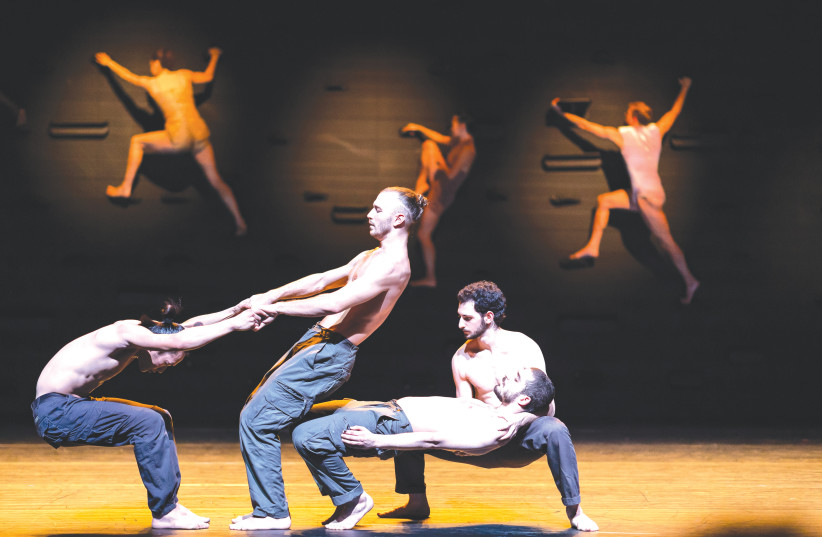Choreographer and dancer Stav Struz Boutrous is among the new voices within the circle of independent choreographers, yet her artistic presence has already been noticed. Her earlier career as a dancer with Batsheva Ensemble, Batsheva Dance Company and others enriched her performance skills. As a dancemaker, she comes out as a distinct, original voice.
She brings to the stage a unique movement lexicon, unfamiliar body perception underlined by a simple short verbal narrative. An almost subversive approach since story-based ballet and dance is directly associated with the fading past. In the program, Struz outlines a short narrative: a story about a soldier that has returned to his village after the war and was accepted by two women. That’s all. Helped by a detailed score of gestures, particularly those made by palms and arms that serve as encrypted messages, Spaces has bounds of space for moods and states of mind, which is so touching.
Dozens of years ago, stage dance in Israel gradually gave up its alliance with American modern dance, as a new generation of artists adopted Eurocentric affiliation with the vivid and biting dance scene there.
The path that Struz took connects her to another continent since she derives her cultural references from the Caucasus region, Russian culture and their distinct rich ethnic manifestations. She intends to integrate traditional folk dance components and contemporary dance perceptions. A Herculean attempt, no doubt.
What is the dance?

A distant bell tolls while two dancers, dressed in mid-calf simple white dresses over modest black leotards, weave a story by a string of gestures; fluttering arms, swaying palms softly away from the body, as if releasing bad thoughts or dismissing the passage of time, as a bell tolls again. Something strange crawls across the stage shaped like an oversized turtle. Someone sobs. The exhausted soldier lays his head on a log and the two women unload the bags he carried on his back and they comfort him. It sounds simple enough but by now we realize that most of the action, such as moving, turning and supporting one another, is done with deeply bent knees or on them. One could not foresee the ample ways to do it. Surely, some of the leg positions had never been seen on stage before.
Since Struz took upon herself stylistic restrictions, she needed to take extra effort to achieve diversity, some of it seemed a bit contrived.
Some Russian folk dances include dancing on their knees, as well as Georgian staged folk dances, as they share the same sources. This practice, along with dancing on the toes with soft shoes, is practiced exclusively by male dancers. It looks like a torture and requires very long practice from an early age.
Both Stav Struz and Yael Sofer Samson manage to do the knee movements heroically but they aim far beyond-technique issues. Both adapted similar soft, swift, compassionate arm movements that reach artistic heights. Andrey Deutsch started his role as a passive, beaten soldier, yet picked up his energy later and took the stage by a storm. At one point, he curved backwards, pushed his body with his feet and seemed to fly backwards across the stage, and gained his right place in a poetic, delicate triangle.
Spaces power comes from spaces of silence, delicate sensitivities, naivete, decency and modesty, like a handmade woven silk by an assured, uniquely creative artisan.
